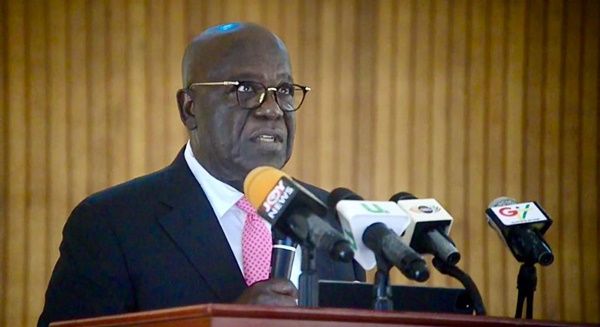
Government’s persistent failure to ensure prompt payment of public sector workers' social security contributions is weighing heavily on the Social Security and National Insurance Trust (SSNIT).
Government through the Controller and Accountant General’s Department typically pays public sector workers’ contributions on quarterly basis; however, the arrears sometimes pile up for three quarters – a situation SSNIT’s Director-General, John Ofori-Tenkorang, says is impacting negatively on the scheme.
The Director-General, responding to questions before the Public Accounts Committee of Parliament concerning why the Trust recorded losses in 2018 and 2019, cited delays in payment of public sector workers’ contributions. He reiterated that the deficits recorded in revenue for the years in question were as a result of increase in benefits payments as well as shortfalls in expected contributions from the Controller and Accountant-General’s Department.
His appearance before the Committee follows findings from the 2020 Auditor-General’s report on Public Accounts of Public Boards, Corporations and other Statutory Institutions which showed that SSNIT recorded deficits of GH¢442million in 2018 and GH¢427million in 2019.
Although he did not state how long the contributions have been outstanding, the arrears stood at eight months in July 2022. Ideally, SSNIT invests these contributions in diversified portfolios that guarantee maximum returns for contributors. Any delays, therefore have the potential of disrupting investment decisions and the expected returns.
Even though the situation may not immediately affect individual pension beneficiaries, Dr. Ofori-Tenkorang noted that long-term effects on the Trust could be dire.
“The short-term answer is ‘no’ because if you retire today we would not say that your contributions have not been remitted. As long as it has been filed and acknowledged by your employer that you were working, we will go ahead and pay you everything that is due you; but there is going to be a time when we will not have the cash to pay,” he explained.
Dr. Ofori-Tenkorang further pointed out that the Trust in 2020 recorded a surplus of about GH¢1.1billion, followed by a deficit of about GH¢302million in 2021. He is however projecting a surplus for 2022.
Meanwhile, the Committee’s Chairman, James Klutse Avedzi, emphasised that the fluctuations do not look good and need to be addressed holistically.
Regarding sustainability of the Trust, the SSNIT boss indicated that management is planning to initiate stakeholder engagement and collaboration to achieve a sustainable contribution rate.











